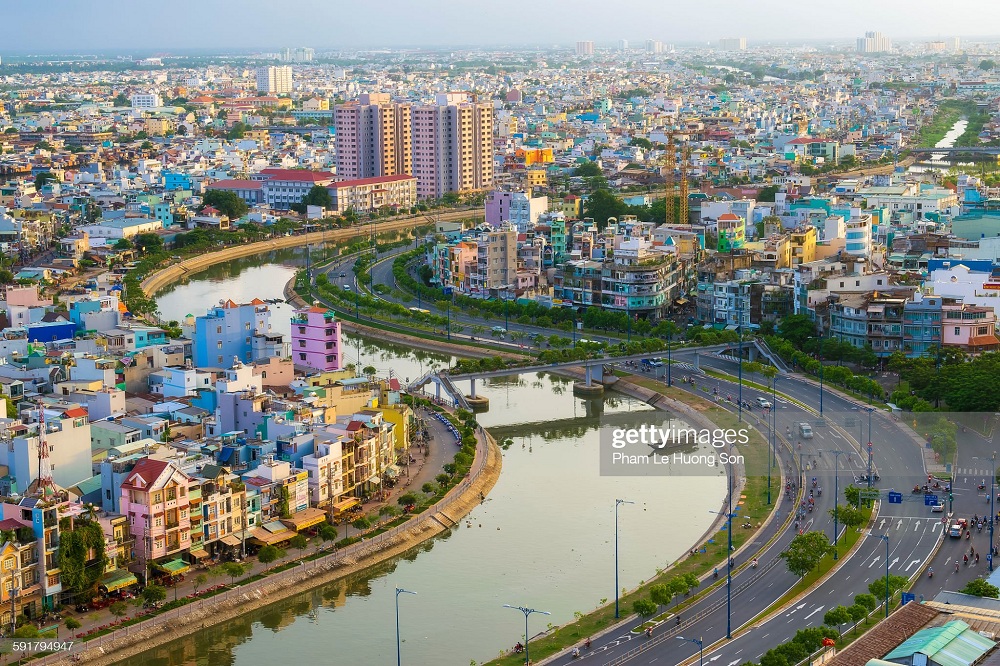Promoting sustainability in Southeast Asia and Vietnam
ASEAN’s sustainability commitment is a key driver for growth and investment. So it is necessary to promote sustainability in Southeast Asia and Vietnam.

Vietnam is one of four ASEAN countries amongst the faster growing economies in the world, one of three ASEAN countries that recorded the large FDI inflows.
>> Vietnam economy: Firm rebound amid challenges
Ground for trade and investments
Over the past decade, ASEAN’s economy has developed rapidly, largely due to its unique geographical location and favourable business environment. As a single market, ASEAN is currently the 5th largest economy, valued at USD 3.2 Trillion, after the United States, China, Japan and Germany. Furthermore, the region is on track to becoming the 4th largest economy by 2030, eclipsing Japan.
The region’s FDI growth has been driven by strong investment mainly in Singapore, Indonesia and Vietnam; these three countries received more than 80% of the inflows in 2019. That same year, ASEAN recorded the largest FDI inflow of any emerging market. Although affected by COVID-19, by 2021, FDI into ASEAN had returned to pre-pandemic levels of USD 175 billion.
Where investments are concerned, due in part to its strategic geographical location, ease of doing business, tax incentives and FTAs (Free Trade Agreements), ASEAN is currently one of the most attractive investment destinations for investors who are seeking to expand their global footprint.
However, ASEAN need immediate action to maintain the attractiveness to investors. According to Southeast Asia Turning Point report, ASEAN is now at the turning point. Over the next half-century, climate change could see Southeast Asia lose US$28 trillion in present value term. However, rapid decarbonization could yield gains for Southeast Asia’s economy of approximately US$12.5 trillion in present value terms by 2070.
Sustainability in ASEAN
Regarding the sustainability in ASEAN, Ms. Ng Jiak See, Deloitte Asia Pacific Financial Advisory Leader, shared her insights at the ASEAN Bridge event held in September 9, 2022 in Ho Chi Minh City. Her sharing offers a better understanding on the potential of the region and how to unlock the values with sustainable investments to the Government and business leaders.
At the event, Ng Jiak See focused on four megatrends including: (1) Geopolitical shifts; (2) Digital advances; (3) Changing demographics; and (4) ASEAN’s ESG (Environment, Social and Governance) commitment and capabilities – and go in depth into the market forces that are driving sustainable investments in the region.
.jpg)
Ms. Ng Jiak See, Deloitte Asia Pacific Financial Advisory Leader, shared her insights at the ASEAN Bridge event held in September 9, 2022 in Ho Chi Minh City.
Jiak See also explained how businesses can unlock value with sustainable investments, where ESG should now be regarded as a key lever of value. Lastly, Jiak See demonstrated how important business leaders are in driving this change – the need for leaders to customise their own sustainability strategy for their organisations, what are the challenges leaders are currently struggling with, and the needle-moving actions they can take to seize the opportunity of sustainability.
“For ASEAN, in acting now, the region can generate a cycle of positive outcomes. Sustainable financing will support improvements to existing infrastructure; which in turn unlocks new sustainable assets, which in turn furthers transition into a low carbon economy; which in turn increases investor trust in sustainable investments; which in turn enhances attractiveness to investors; which in turn allows sustainable infrastructure to gain access to more funding; and the cycle goes round”, Jiak See noted.
>> Vietnam emerged as a regional outperformer
Action plan towards sustainability
Vietnam is one of four ASEAN countries amongst the faster growing economies in the world, one of three ASEAN countries that recorded the large FDI inflows. Vietnam is also the top choice when multinational companies consider to relocate a growing proportion of their manufacturing from China to ASEAN countries, to assert supply chain resilience. This exercise contributes to Vietnam’s annual 6-7% economic growth over the past decade.
To promote sustainability, Deloitte Vietnam has recently launched Sustainability & Climate service line. Deloitte’s experts support clients in defining a path to a more sustainable through redefining strategies, embedding sustainability into the operations, meet tax, regulatory requirements and disclosure, and help accelerating the transformation of the organizations and value chains.
Sharing on the sidelines of the ASEAN Bridge event, Ms. Ha Thu Thanh, Chairperson of Deloitte Vietnam, said: “Vietnam is clearly a destination for investment and trade, thanks to competitive advantages such as labour costs, political stability and social-cultural conditions. But it is also one of the most vulnerable countries to climate change. Therefore, all parties, including government, businesses and individuals – need to take actions against climate change today. Collective climate actions in this decade will contribute to realizing Vietnam's commitment to achieve net zero by 2050. Deloitte Vietnam has launched WorldClimate strategy internally within the organization, and also have offered new services to accompany clients towards a sustainable future from this year. What seems a cost today is an investment in climate-driven economy to open great opportunities.”








